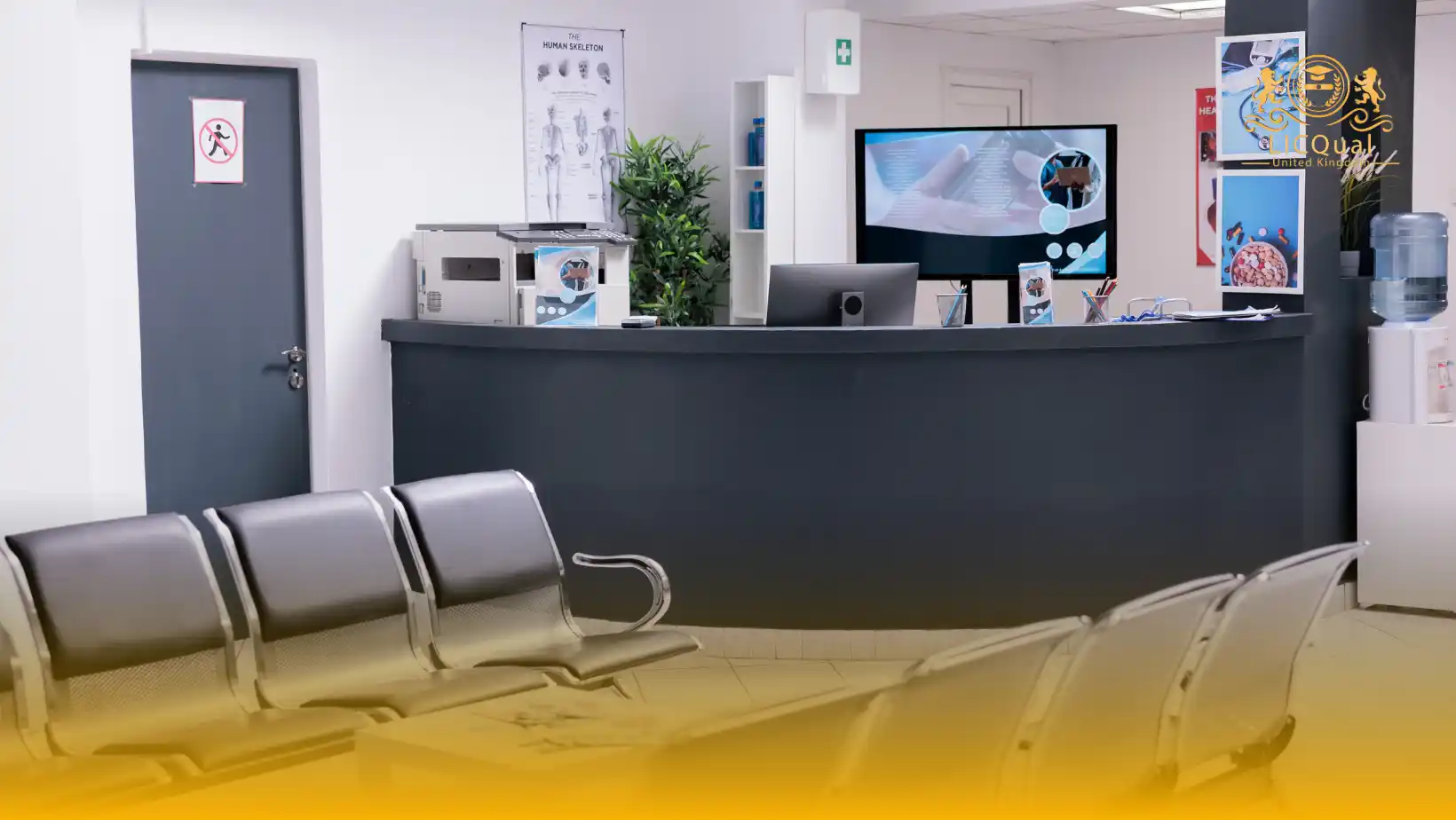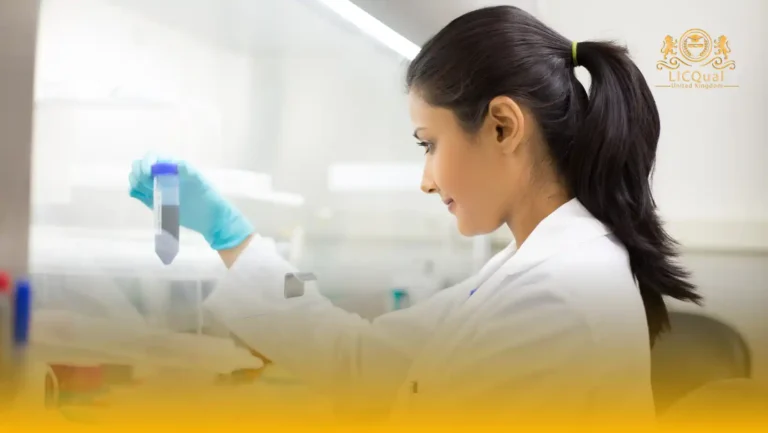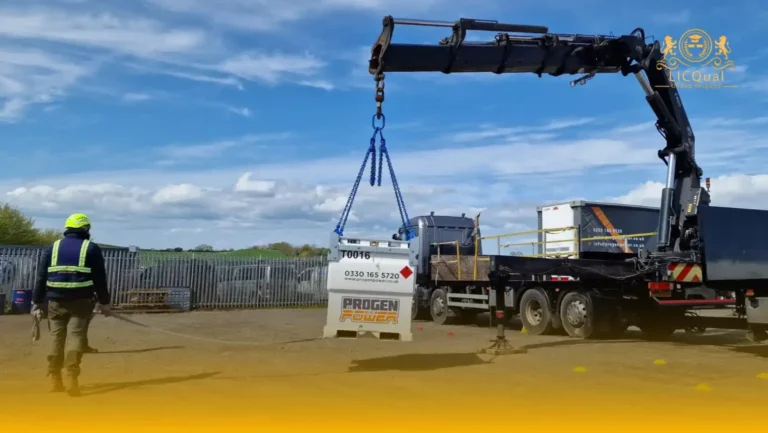The LICQual Level 6 Diploma in Clinical Toxicology (D Clinical Toxicology) is an advanced qualification designed for professionals working in healthcare, pharmaceuticals, forensic science, and related disciplines. This programme is not intended for fresh candidates; it is aimed at experienced learners who want to strengthen their expertise, enhance their professional development, and progress towards more senior responsibilities. It provides an excellent pathway for those committed to broadening their knowledge and achieving Continuing Professional Development (CPD) goals.
Clinical toxicology is a critical field that focuses on the detection, assessment, and management of poisoning, drug toxicity, and exposure to hazardous substances. Through this diploma, learners will explore advanced principles of toxicology, pharmacokinetics, forensic applications, antidote therapies, and risk management strategies. The qualification also emphasises global standards in safety, ethical practice, and compliance, ensuring learners gain skills that can be applied effectively across healthcare and scientific environments.
Centres delivering the Level 6 Diploma in Clinical Toxicology must demonstrate a strong commitment to academic and professional excellence. This includes employing competent and qualified staff with relevant expertise, as well as providing access to specialist resources, laboratories, and study materials to support advanced theoretical and practical learning. These requirements are essential to ensure that learners benefit from a structured and high-quality educational experience.
By enrolling in this diploma, learners will acquire advanced scientific knowledge, analytical skills, and professional competencies needed to succeed in the evolving fields of clinical toxicology and healthcare sciences. This qualification offers a solid foundation for career progression, research opportunities, and long-term professional success.
Course Overview
Qualification Title
LICQual Level 6 Diploma in Clinical Toxicology (D Clinical Toxicology)
Total Units
6
Total Credits
120
GLH
480
Qualification #
LICQ2201210
Qualification Specification
To enroll in the LICQual Level 6 Diploma in Clinical Toxicology (D Clinical Toxicology), applicants must meet the following criteria:
|
Qualification# |
Unit Title |
Credits |
GLH |
|---|---|---|---|
|
LICQ2201210-1 |
Advanced Principles of Clinical Toxicology |
20 |
80 |
|
LICQ2201210-2 |
Poisoning, Overdose, and Drug Toxicity Management |
20 |
80 |
|
LICQ2201210-3 |
Antidotes, Therapies, and Supportive Care in Toxicology |
20 |
80 |
|
LICQ2201210-4 |
Forensic Toxicology and Analytical Techniques |
20 |
80 |
|
LICQ2201210-5 |
Public Health, Risk Assessment, and Toxicology Policy |
20 |
80 |
|
LICQ2201210-6 |
Research, Innovation, and Ethical Issues in Clinical Toxicology |
20 |
80 |
By the end of this course, learners will be able to:
Unit 1: Advanced Principles of Clinical Toxicology
By the end of this unit, learners will be able to:
- Critically evaluate the principles of toxicokinetics and toxicodynamics in clinical settings
- Analyse mechanisms of toxicity at molecular, organ, and systemic levels
- Apply advanced clinical assessment techniques to diagnose toxic exposures
Unit 2: Poisoning, Overdose, and Drug Toxicity Management
By the end of this unit, learners will be able to:
- Identify, diagnose, and manage acute and chronic poisoning cases
- Evaluate treatment protocols for pharmaceutical, chemical, and environmental toxic exposures
- Develop effective clinical interventions for overdose and substance abuse management
Unit 3: Antidotes, Therapies, and Supportive Care in Toxicology
By the end of this unit, learners will be able to:
- Demonstrate advanced knowledge of antidote therapies and their clinical applications
- Integrate pharmacological and non-pharmacological strategies in toxicology care
- Deliver supportive and critical care interventions for toxic emergencies
Unit 4: Forensic Toxicology and Analytical Techniques
By the end of this unit, learners will be able to:
- Apply forensic toxicology principles in medico-legal investigations
- Use advanced analytical laboratory methods to detect and quantify toxic substances
- Interpret toxicological evidence to support clinical and legal decision-making
Unit 5: Public Health, Risk Assessment, and Toxicology Policy
By the end of this unit, learners will be able to:
- Assess the impact of toxicological hazards on public health and environmental safety
- Apply risk assessment models to chemical, pharmaceutical, and occupational exposures
- Contribute to the development of policies and preventive strategies in clinical toxicology
Unit 6: Research, Innovation, and Ethical Issues in Clinical Toxicology
By the end of this unit, learners will be able to:
- Critically evaluate emerging research and innovations in toxicology science
- Address ethical and legal issues in toxicology practice and research studies
- Analyse global challenges and future opportunities in clinical toxicology
The LICQual Level 6 Diploma in Clinical Toxicology (D Clinical Toxicology) is designed for healthcare professionals who want to specialize in the management of poisoning, drug overdoses, and toxic exposures. This internationally recognized qualification is ideal for pharmacists, clinicians, emergency medicine specialists, researchers, and graduates seeking global accreditation, career advancement, and specialized skills in toxicology. Whether your goal is to strengthen your expertise, pursue international opportunities, or enhance patient safety, this diploma provides the perfect pathway.
1. Practicing Pharmacists
- Looking to specialize in clinical toxicology and poison management
- Interested in gaining international accreditation and recognition
- Seeking advanced knowledge in antidote therapies and toxic substance management
- Wanting to expand career opportunities in hospitals, poison control centers, and pharmaceutical companies
- Focused on improving patient safety and pharmaceutical care standards
2. Hospital and Clinical Pharmacists
- Managing patients with complex toxicological emergencies
- Seeking structured clinical toxicology training with practical applications
- Interested in evidence‑based pharmaceutical practices for poisoning and overdose cases
- Looking to enhance collaboration with physicians and emergency medicine teams
- Aiming to strengthen their role in multidisciplinary patient care
3. Emergency Medicine Specialists
- Doctors and nurses working in emergency departments and trauma centers
- Interested in clinical toxicology education pathways for career growth
- Seeking deeper understanding of toxic exposures and rapid intervention strategies
- Wanting to improve patient outcomes through advanced toxicology knowledge
- Looking for internationally recognized clinical toxicology qualifications
4. Academic and Research Professionals
- Engaged in toxicology research and pharmaceutical studies
- Seeking advanced clinical toxicology certification programs
- Interested in contributing to evidence‑based treatment protocols and antidote development
- Looking to strengthen academic credentials with a Level 6 qualification
- Focused on publishing and teaching in clinical toxicology fields
5. International Students and Graduates
- Seeking globally accredited clinical toxicology diploma programs
- Interested in flexible, career‑focused toxicology education
- Looking to qualify for international healthcare and research opportunities
- Wanting to enhance employability with recognized clinical toxicology certification
- Focused on building a career in toxicology worldwide
6. Public Health and Regulatory Professionals
- Working in environmental health, occupational safety, or regulatory agencies
- Interested in clinical toxicology diploma online for career advancement
- Seeking specialized knowledge in chemical safety and toxic exposure management
- Looking to improve compliance with international health and safety standards
- Focused on bridging public health, research, and patient care in toxicology
7. Career‑Focused Healthcare Graduates
- Recent graduates aiming to specialize in clinical toxicology
- Looking for structured toxicology career qualifications
- Interested in clinical toxicology diploma with global accreditation
- Seeking advanced toxicology training for professional growth
- Focused on building a strong foundation in poison management and pharmaceutical practice
Centres intending to deliver the LICQual Level 6 Diploma in Clinical Toxicology must meet strict quality standards to ensure professional delivery and learner success. It is essential that training is conducted by centres equipped with qualified staff, appropriate resources, and suitable facilities in line with international best practice.
To deliver this qualification effectively, centres must have:
- Qualified and Competent Staff – Tutors, trainers, and assessors must hold relevant academic qualifications and professional experience in clinical toxicology, medicine, pharmacy, or related disciplines.
- Access to Clinical and Laboratory Resources – Centres should provide learners with up-to-date materials, laboratory access, and case study resources to support the study of toxicological analysis, antidote management, and risk assessment.
- Modern Learning Facilities – Classrooms, laboratories, or online learning platforms must be well-structured and technologically equipped to deliver advanced-level training.
- Quality Assurance Systems – Centres must implement effective quality assurance processes, including internal verification, assessment monitoring, and compliance with LICQual standards.
- Supportive Learning Environment – Learners should have access to study materials, research journals, and e-learning tools to support independent and guided learning.
- Commitment to CPD and Innovation – Centres must encourage trainers and learners to actively engage in Continuing Professional Development (CPD) to ensure updated knowledge and practices in clinical toxicology.
By meeting these requirements, centres can ensure the delivery of high-quality education, enabling learners to gain advanced knowledge, refine their professional skills, and achieve success in the specialized field of clinical toxicology.
Assessment and Verification
All units within this qualification are subject to internal assessment by the approved centre and external verification by LICQual. The qualification follows a criterion-referenced assessment approach, ensuring that learners meet all specified learning outcomes.
To achieve a ‘Pass’ in any unit, learners must provide valid, sufficient, and authentic evidence demonstrating their attainment of all learning outcomes and compliance with the prescribed assessment criteria. The Assessor is responsible for evaluating the evidence and determining whether the learner has successfully met the required standards.
Assessors must maintain a clear and comprehensive audit trail, documenting the basis for their assessment decisions to ensure transparency, consistency, and compliance with quality assurance requirements.







